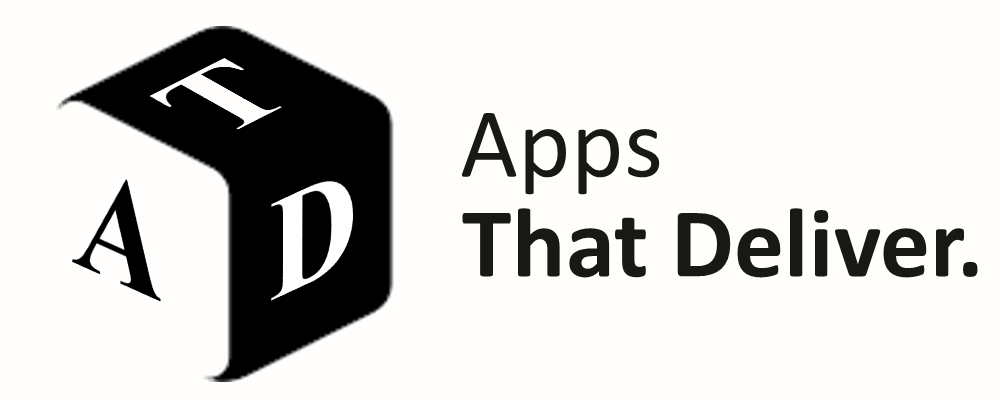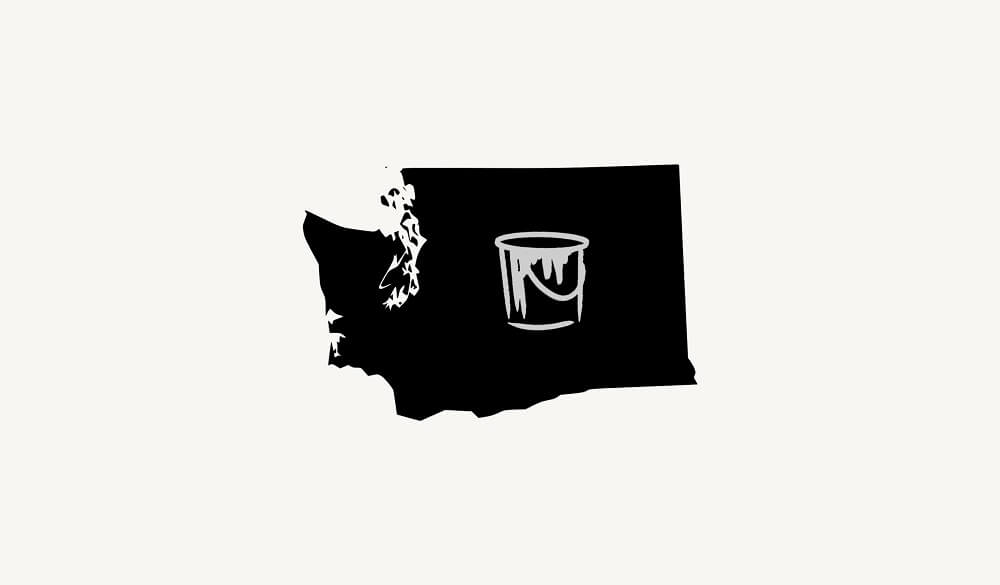Washington state is home to 608,956 small businesses that employ 1.4 million people, more than half of the private sector workforce in the state. These small businesses account for 99.5 percent of all businesses in Washington, with more than half employing less than 100 people. Washington’s economy is worth $563.2 billion, ranking it as the country’s 12th highest. Real GDP increased by 5.7 percent in 2018, far outpacing the national average of 2.9 percent.
Establishing a new business is an exciting and difficult endeavor. This guide outlines the process and demonstrates how to start a painting business in the state of Washington.
Complete Guide: How to Start a Painting Business
How To Start A Painting Business In Washington State:
- Getting Started
- Write a Business Plan
- Determine your business’ legal structure
- How to Register your Painting Business Name in Washington State
- Employer Identification Number (EIN)
- Open a Business Checking Account
- Get Liability Insurance
- Get Health Insurance
- Final Thoughts
Getting Started
If you’re looking to start a scalable small business with an established business model, starting a painting business might be ideal for you.
The best part is that virtually everyone can start a painting company. All it takes to get started is a little money, some effort, and some simple tools. If you’re an experienced painter or a novice, starting a painting business can be an excellent investment.
We’ll cover everything you need to know about starting a painting business in Washington state in this guide.
Write a Business Plan
A strategy can assist you in growing your business. Consider the following:
If you’re like the majority of people, you wouldn’t purchase a car without researching and reading. You would choose one after weighing the positive and negative characteristics of different cars. You’d check to see that the car starts before signing the title.
It’s the same with your business venture. You must ensure that your venture has the potential to be a profitable investment.
A business plan can be as straightforward as an outline or as detailed as a document. Your plan serves as a road map, guiding you in the right direction.

Create a One-Page Business Plan
You should be able to complete your one-page business plan in less than 20 minutes. It’s super-simple: Print our free PDF template and write down one to two sentences to the questions in the free template below:
Download template: PDF
Determine your business legal structure
A business is a legal entity that is capable of owning land, maintaining bank accounts, and being subject to taxation. There are several business structures, each with its own set of advantages and disadvantages.
The four most common business structures are as follows:
- Sole Proprietorships
A sole proprietorship is a business that is owned and operated by a single person or married couple. The most prevalent business structure is the sole proprietorship. This type of business is straightforward to establish and run and can benefit from increased management flexibility, fewer legal restrictions, and lower taxes. The business owner, on the other hand, is directly responsible for any debts incurred by the business.
- General Partnerships
A general partnership is formed when two or more individuals (who are not married) plan to contribute capital, labor, or ability to a business. Each partner is equally responsible for the partnership’s profits, losses, and management, and each partner is personally and equally liable for the partnership’s debts. Typically, the relationship’s formal terms are found in a written partnership agreement.
- Limited Liability Companies (LLCs)
A Limited Liability Company (LLC) is established by a special written arrangement between one or more persons or organizations. The agreement outlines the LLC’s structure, including clauses for management, assignability of interests, and benefit and loss distribution. LLCs can engage in any lawful for-profit business or operation, with the exception of banking or insurance. It is necessary to register with the Washington Secretary of State.
- Corporations
A corporation is a more dynamic type of business organization. Beyond the rights, privileges, and liabilities of a person, a company has some additional rights, privileges, and liabilities. Although conducting business as a corporation may provide tax or financial benefits, these benefits may be outweighed by other factors, such as increased licensing fees or diminished personal power. Corporations may be created for commercial or charitable purposes. Corporations, except banks, must file with the Washington Secretary of State prior to submitting a Business License Application.
How to Register your Painting Business Name in Washington State
According to RCW 19.80.10, you must register a trade name or “doing business as” name for the following purposes:
- A Sole Proprietorship or Partnership operating under a name other than the owner’s or owners’ full legal name.
- A Corporation, Limited Partnership, or Limited Liability Company that does not have its name registered with the Secretary of State’s Office.
- Any business name that is not your legal full name.
Registering your business name does not ensure that it is not used by others. Unlimited trade names may be registered by a business.
A trade name will remain registered in perpetuity unless the owner requests cancellation. There is no fee associated with the cancellation of a trade name.
If you wish to register a trademark or service mark as well, you should consult an attorney. If your business activities will take you outside of Washington State, you may wish to register a trademark with the United States Patent and Trademark Office. If your business activities will be confined to the state of Washington, it may be advantageous to register a trademark with the Secretary of State.
U.S. Patent and Trademark Office
Washington Secretary of State
Employer Identification Number (EIN)
You may be unsure whether you need a federal tax identification number, a Washington state tax identification number, or both. The simplest answer is that the majority of businesses in the state of Washington would need both a federal tax identification number and a Washington state tax identification number to operate legally.
You’ll need a federal tax identification number if your business has multiple members—for example, if you’re part of a partnership with multiple founding members or if you want to recruit employees. Additionally, you’ll use your federal tax ID for accounting and banking purposes, as well as for business licence and permit applications.
If you want to recruit workers in the state of Washington, you must obtain a Washington state tax identification number. Due to the fact that this is often used for tax monitoring, you’ll need one if you sell taxable goods and services in the state or if you’re going to owe excise taxes on items like alcohol or fuel.
Employer Identification Number (EIN)
Open a Business Checking Account
When you start a business, you are constantly looking for ways to streamline operations. You could create an online calendar so clients can easily schedule meetings with you, or you could outsource administrative tasks you dislike.
However, when it comes to simplifying your financial life, establishing a business bank account is critical for business success. Keeping your business funds separate from your personal funds will actually make managing your business simpler and easier as it grows.
By maintaining a separate business bank account, you can keep your personal and business transactions separate, which makes keeping accurate books and records easier.
Get Liability Insurance
Accidents happen all the time, and businesses must be covered in the event of an accident — the latest analysis shows that the average customer injury insurance claim is $35,000.
It is important for business owners to avoid leaving themselves unprotected and to ensure that they have the protection necessary to cover all of the risks associated with their operation. After all, not having the appropriate forms of insurance may be equivalent to not having any, leaving companies vulnerable to a variety of types of losses.
General liability insurance, alternatively referred to as business liability insurance, is a form of insurance policy that protects companies from claims arising from regular business operations. Company liability insurance usually covers small companies from physical injury, medical expenses, and advertisement accidents, among other things.
Get Health Insurance
Across sectors, companies have realized that their true assets are their human capital. Aware company owners who see their workers as their most valuable asset are gradually purchasing group insurance for them in appreciation of this.
Employers/business owners purchase group insurance to protect all of their employees at any given time. Additionally, the insurer pays the insurance fee. Employees may make a claim under the policy in the event of an occurrence. This basically ensures that employers provide workers with health insurance coverage.
Final Thoughts
Although painting can appear to be a simple business, it requires considerable effort. Until you decide to make cleaning your full-time or side job, it’s a good idea to spend a few days “on the job” to ensure you’re cut out for the job.
With a painting company, you can gradually expand your workload and customer base as you gain experience. When you develop your schedule and build a base of loyal customers, you’ll be able to optimize your time and expenses while maintaining an outstanding level of service, if you take the necessary steps in advance.
Complete Guide: How to Start a Painting Business


